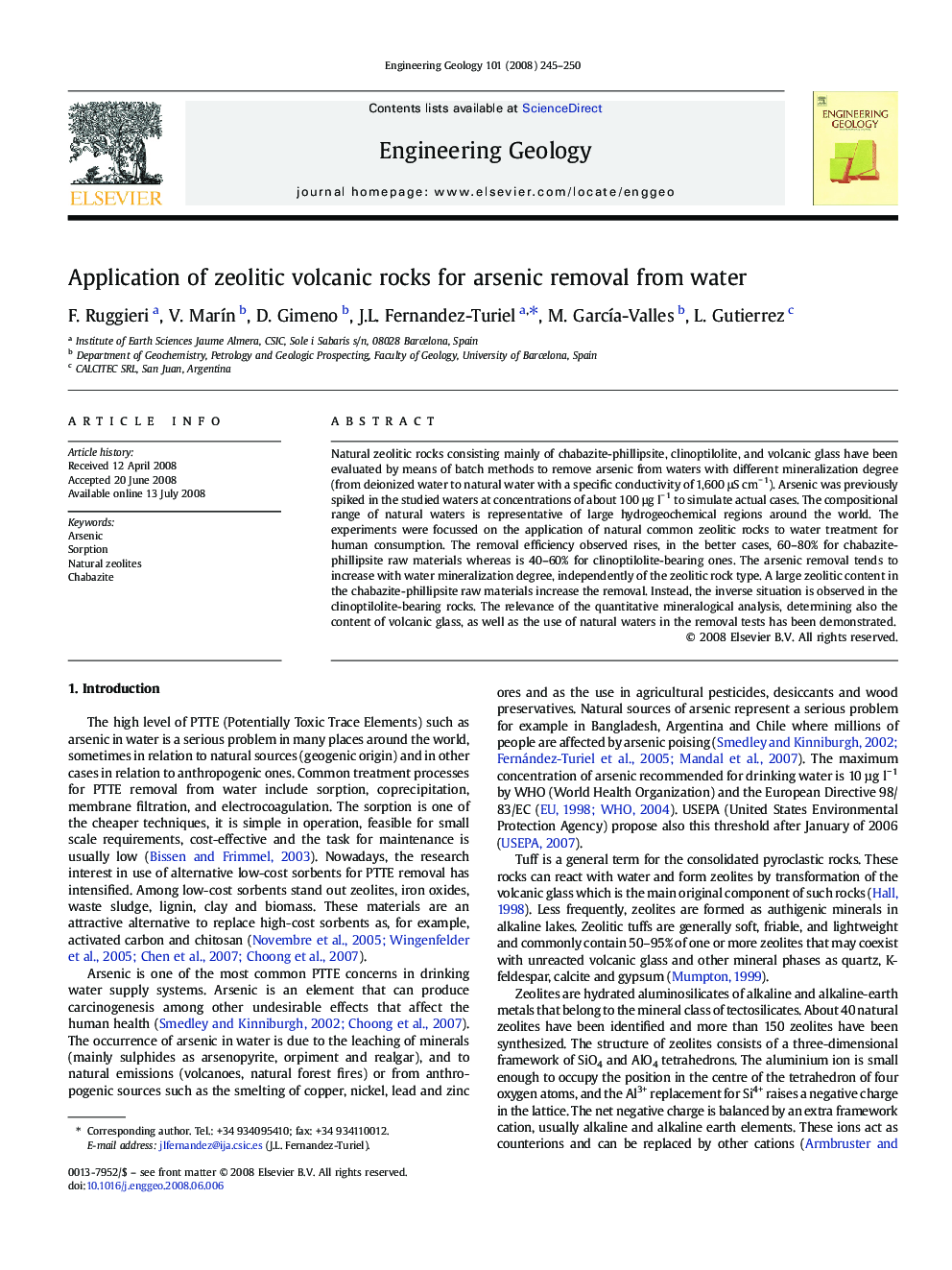| Article ID | Journal | Published Year | Pages | File Type |
|---|---|---|---|---|
| 4744585 | Engineering Geology | 2008 | 6 Pages |
Natural zeolitic rocks consisting mainly of chabazite-phillipsite, clinoptilolite, and volcanic glass have been evaluated by means of batch methods to remove arsenic from waters with different mineralization degree (from deionized water to natural water with a specific conductivity of 1,600 μS cm− 1). Arsenic was previously spiked in the studied waters at concentrations of about 100 µg l− 1 to simulate actual cases. The compositional range of natural waters is representative of large hydrogeochemical regions around the world. The experiments were focussed on the application of natural common zeolitic rocks to water treatment for human consumption. The removal efficiency observed rises, in the better cases, 60–80% for chabazite-phillipsite raw materials whereas is 40–60% for clinoptilolite-bearing ones. The arsenic removal tends to increase with water mineralization degree, independently of the zeolitic rock type. A large zeolitic content in the chabazite-phillipsite raw materials increase the removal. Instead, the inverse situation is observed in the clinoptilolite-bearing rocks. The relevance of the quantitative mineralogical analysis, determining also the content of volcanic glass, as well as the use of natural waters in the removal tests has been demonstrated.
